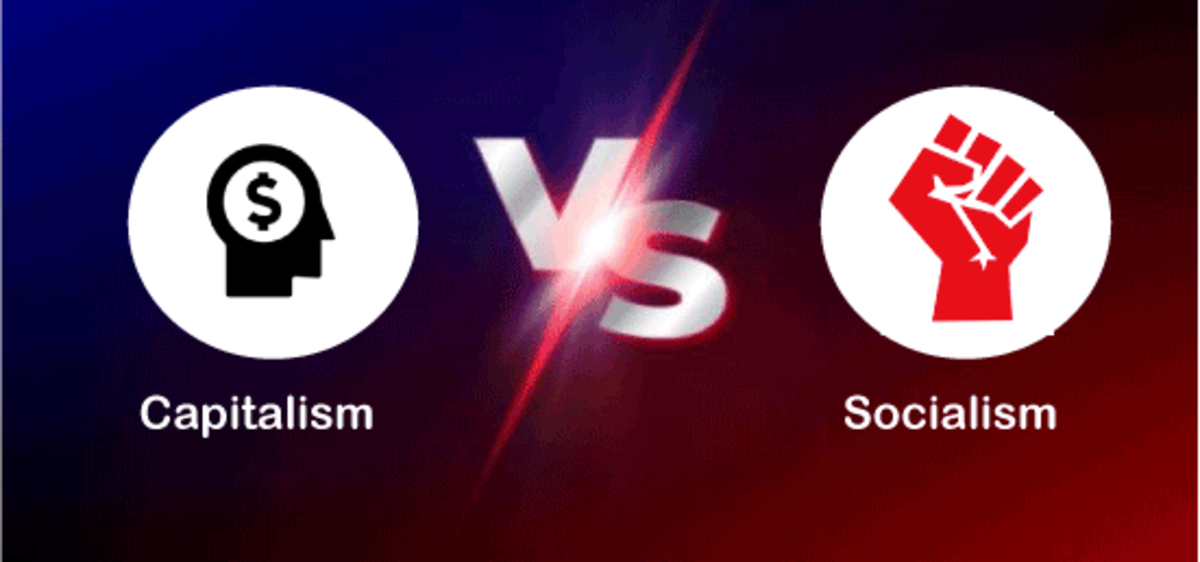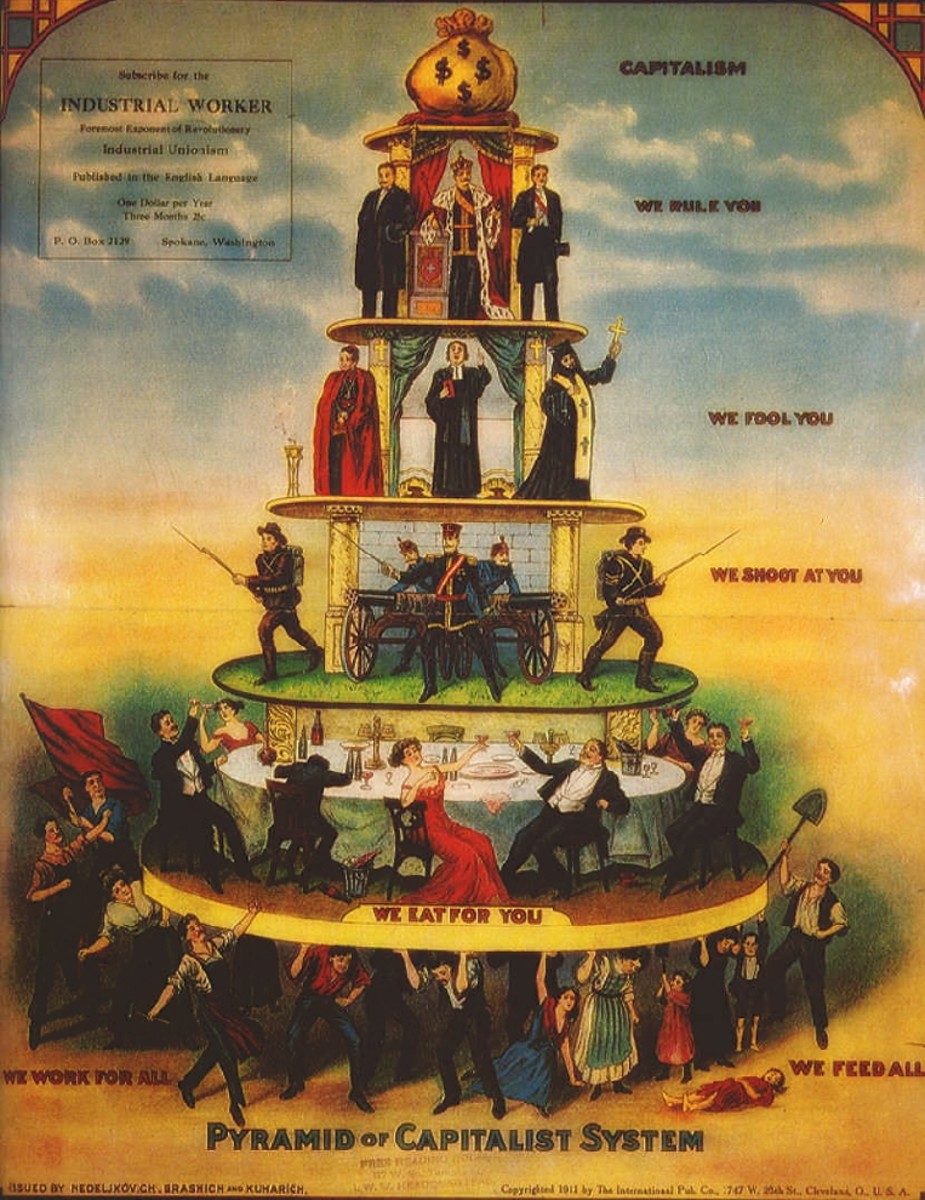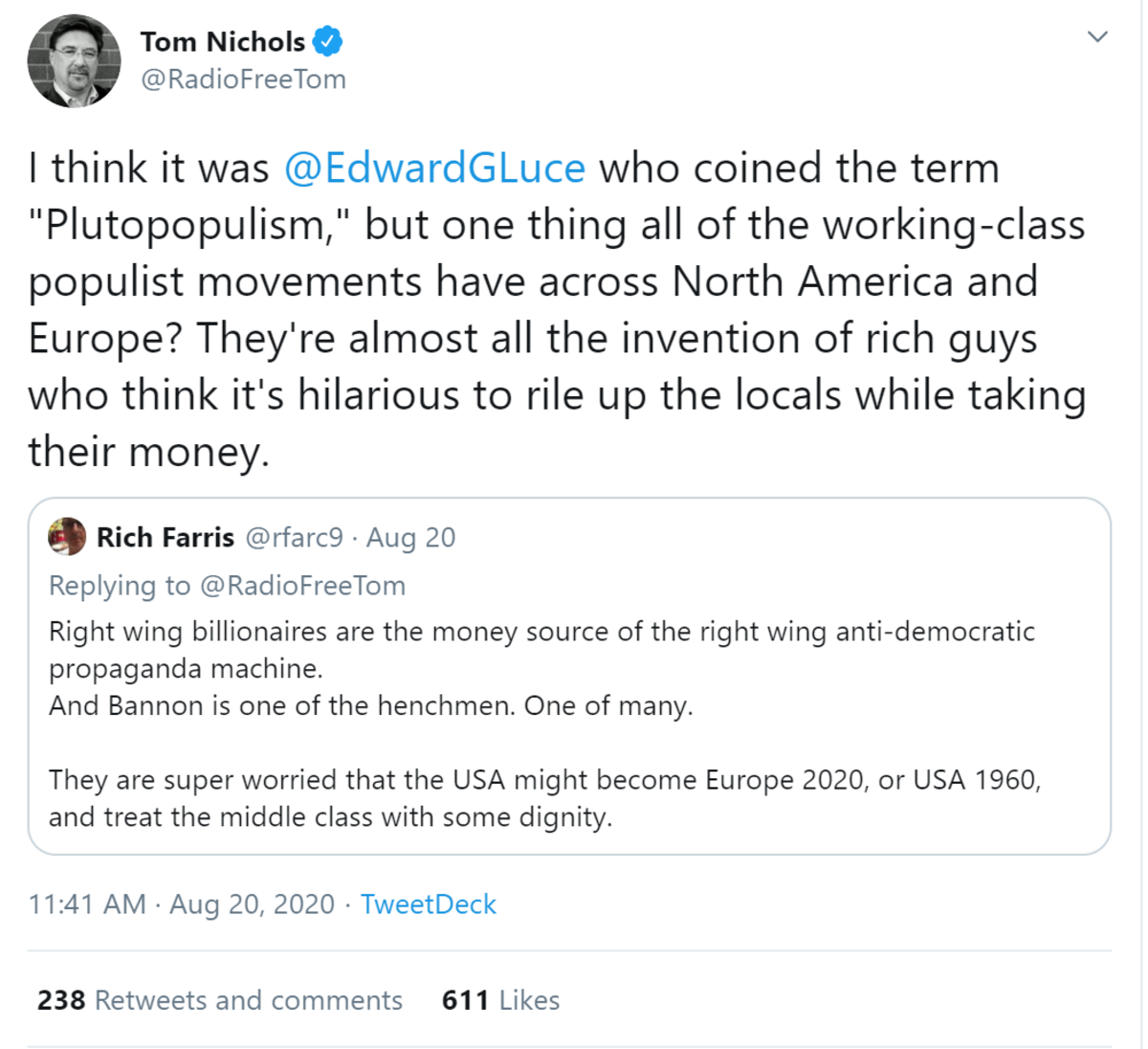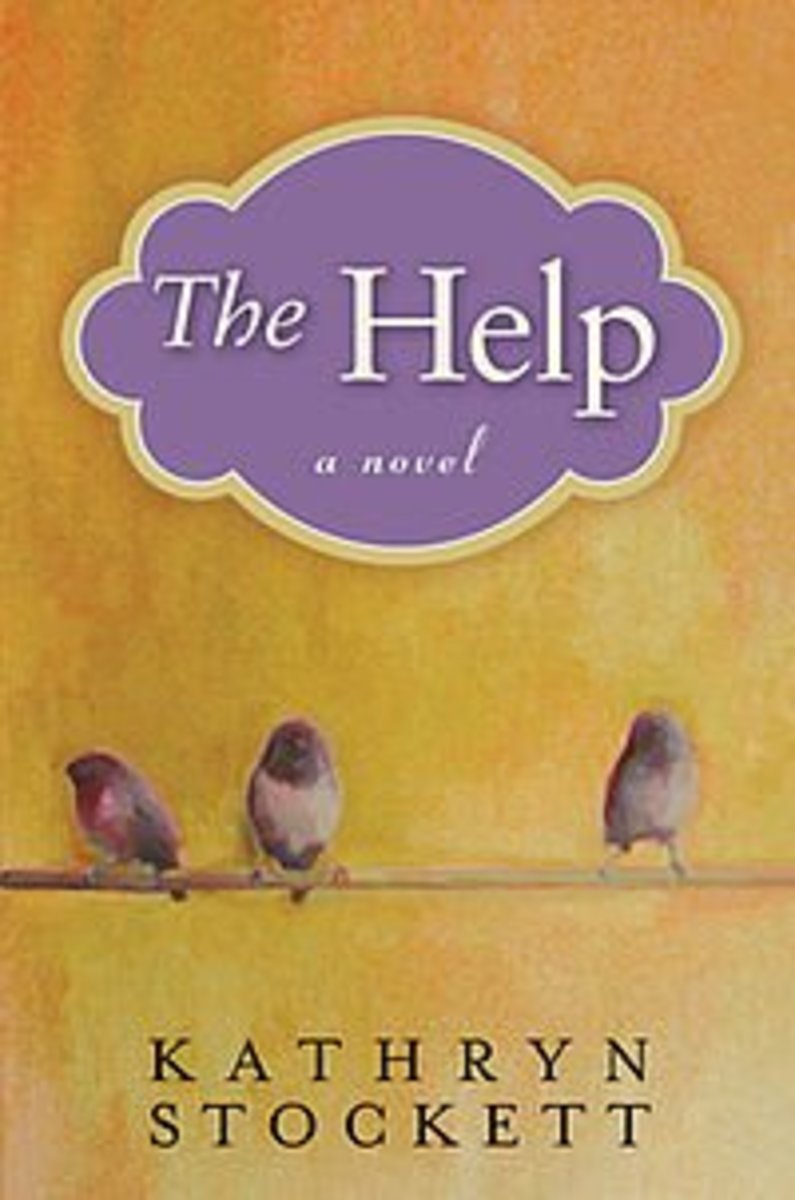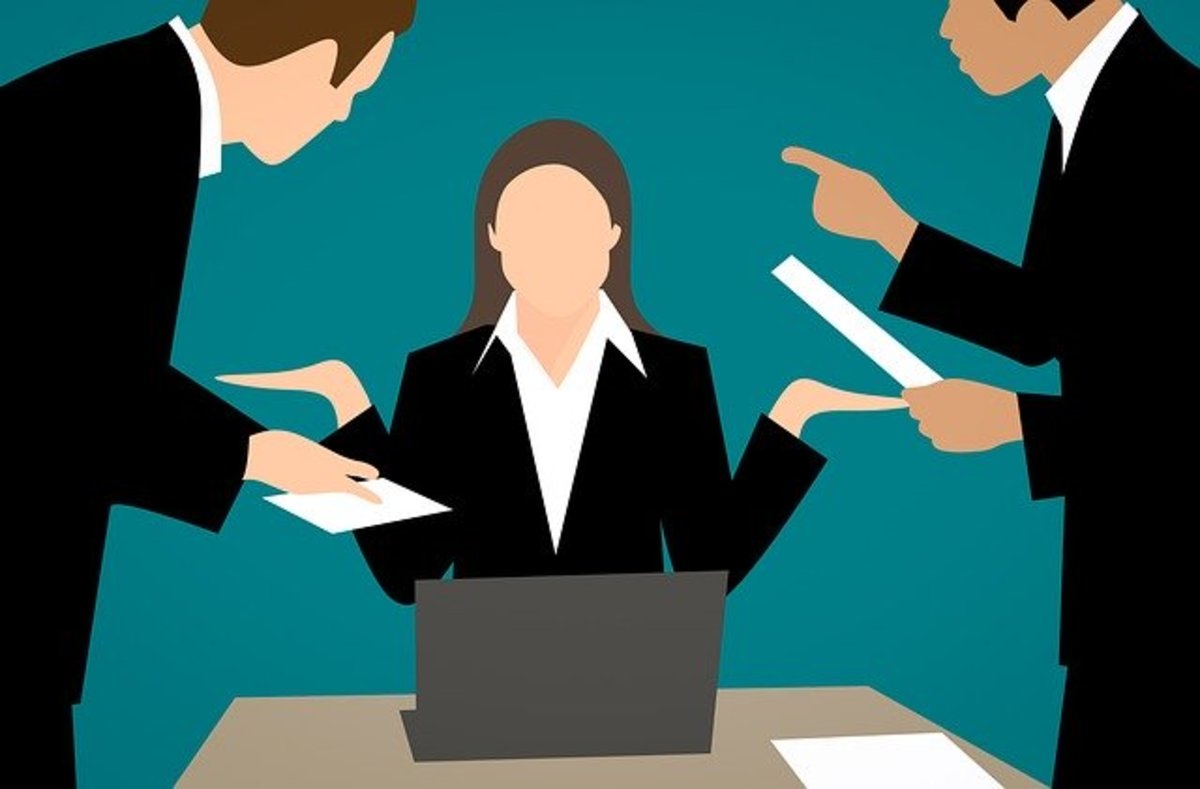Political Projections: Is It Really A Hate of Capitalism and Religion, Or Is It Something Else?

“We can recognize our prejudices and illusions only when, from a broader psychological knowledge of ourselves and others, we are prepared to doubt the absolute rightness of our assumptions and compare them carefully and conscientiously with the objective facts. Funnily enough, “self-criticism” is an idea much in vogue in Marxist countries, but there it is subordinated to ideological considerations and must serve the State, and not truth and justice in men’s dealings with one another. The mass State has no intention of promoting mutual understanding and the relationship of man to man; it strives, rather, for atomization, for the psychic isolation of the individual…” – Carl Jung, The Undiscovered Self
The divide in this country is most certainly along spiritual grounds (one can even say they are in the world as well). It is the spiritual war between the extrovert (one who finds fulfillment in the world outside him or herself) and the introvert (one who finds fulfillment inside him or herself) and it is a spiritual war too between the sacred and profane.
We can observe in this country, for example, that the “secular” peoples belong, predominantly, to the “Democratic” party, and the people who believe in God belong, predominantly, to the “Republican” party; so while there is certain to be overlap of these various belief components in certain individuals, it is – and most amazingly so – a particular person’s view of God that shapes one’s political view more than any other.
It was Carl Jung, a psychologist, who believed that division of a people in a country might be remedied by bringing to consciousness the psychological projections that cause division, and what he wrote was bi-partisan in all respects. As one gleans over the years preceding the great economic fallout of 2008, the years that shaped our now stark political and moral divide, emotions and unconscious projections were indeed taking form that reflected “group” consciousness and deeply-rooted psychological antagonisms. Our lives were spinning out of control, and we could feel the increase of speed in a life we could not keep up with. We increasingly became more divided as we saw parallels between the increase in hostilities between secular and religious persons, and as the threat of economic failure loomed over our heads we knew, almost intuitively, that things were going to bust before they actually did with the economic crash of 2008.
Not only during the years shortly before 2008, but even prior to September 11, we began to notice the rift between our people taking shape, and indeed we were witnessing for the first time, a dissolving of the middle class and a formerly diverse people swiftly being replaced by various “groups” that took on a formation that reflected a group consciousness more “material” in its goals. No longer did people yearn for “opportunity,” but, rather, “money.” It is no surprise then that “groups” became the new norm and way people sought some kind of “empowerment” and, as we shall see, false solace.
Like in all times of “emotional” struggle, we began to question who we are, what we were doing, and the emptiness inside ourselves. Thus began a battle for a new “morality,” with the “Left” seeking to tear down completely our economic system and its purported “religious” canonization of capitalism, the concern for the “individual” and God; and the more conservative among us, the “Right,” seeking to preserve those tenets of freedom that we have always known as individuals since the dawn of this great country, with a call for “personal responsibility,” less government, not more, and so on and so on.
As such, it is no surprise then that one of the ways we began to “project” our divided selves as a country made its appearance in the “grouping” of sexual preferences and alternate lifestyles of people, and gender, and the projection of those attitudes onto other groups, particularly religious groups. First, there arose from the New Left and the election of Obama – almost in a fury – a sudden hate of Christianity and religion in general, a hate that fueled a projection onto a public the false notion that “religious” tolerance was the cause of, not only our failed economy, but all our unhappiness in the lives we live. But has, or does, the projection of hate and blame onto religion serve to ameliorate the loss of empowerment people feel? What have the religious, or religion, really done that is at the root of all the hate?
When Carl Jung was a young man searching for what he wanted to do in his life, one of the observations he made, which is documented in his writings as well, was the fact that he noticed that people became angry at others when the word “God” was used in conversation. In fact, he admitted in his writings that this observation was the single most motivating force behind his choice to become a psychoanalyst more than any other. After all, if one did not believe in God and another did, why was it consistently true that those who did not believe became incensed or angry at those that did?
Moreover, the truth that “religion” is responsible for all our woes in this country becomes invalidated when we look at the history of our country itself. To be sure, “groups” that claimed religiosities were always here, but in the end individualism and rationality over irrationality of mass thinking did prevail. Different lifestyles too were not new to us at all, only less open. Therefore, It was not those who made up the “moral majority” from the years after World War II through to the Sexual Revolution that have stymied the rise of sexual identity groups or gender even if they were resistant. For if it were true that religion and capitalism posed an obstacle to an individual’s sexual self and personal development, no activist groups as we see in formation today (particularly the rise of the “Feminist Movement”) would have been given their right to form in the first place and would have been quashed immediately upon forming, or broken apart completely; nor would they have been allowed to grow large enough to become a force in present day politics. So is this sudden fury of hate arising, rather, as an unconscious projection of self-loathing or guilt that is formed against a backdrop of what is “perceived” as “judgment” by a religious people, or even God? Is it, as Carl Jung theorized, a byproduct of a “collective unconscious” guilt that is a mere projection? (“We are verily guilty” as in Genesis?)
On the flip-side of this projection from the Left onto the Right, however, is yet another new projection. It is a projection from the Right onto the Left that its unbelief or “immorality” is indeed a threat to us all. But is this what was spoken, or was it merely a projection of emotion? Is it real, or is it an illusion? Let's examine.
In the years from 1983 through until 1988, America was a very different place. As an aspiring actress in New York City at that time, and as a child born to an atheist father and religious mother, I can say with certainty that atheists, homosexuals, religious and non-religious women and men of all kinds, all had one thing in common, even in the midst of their own personal struggles: We were all individuals. Individuality and the privacy and pursuit of one’s ambitions was something everyone did and took for granted back then. We all did it no matter how different we were. And by all accounts many were happier back then than they are today.
As an individual pursuing a career in the theatrical arts, working on a play for later production in the theatre took a lot of work and cooperation. I worked with homosexual scene partners, directors, playwrights, as well as heterosexual scene partners, directors and playwrights. No one to my memory cared one bit what the other was in their personal lives, and the only reason I came to know anyone was homosexual at all was if they said so. We laughed together, cried together, partied together after opening nights. No one cared about another’s sexuality for one reason: We were working towards a common goal, and it was strenuous but rewarding work that was important to us all. We literally had no time to exert our energies for “power” over another human being. Nor did I hear one heterosexual person I knew at that time speak badly about homosexuality or homosexuals speak badly about heterosexuals. Frankly, no one cared.
However, this was all during the early 1980’s. The economy had turned around dramatically during former President Reagan’s presidency and was “booming” and opportunities abounding as well. A job could be found, literally, for everyone, and the recycled unemployed were held in abeyance at around 5%.
During this period too, who cannot recall women entering the professions in droves, and the new reference to “mother” taking shape in America as “Super Mom”? There were indeed hundreds of articles written about the great influx of women into the professions, one most noticeable to my memory having to do with women’s entry into the medical professions as “gynecologists/obstetricians” and women literally gleeful over the fact that women, it was hoped, would at last be understood by their doctors. In the legal profession also, female lawyers were becoming more and more noticed in law firms, and I, as a legal secretary who worked for the sole female partner of a major law firm in New York City, had begun to hear more and more women being promoted to “partner” level status.
No, to be sure, it was not the economy or capitalism or religion that was to blame for the disparities between gender and sexual orientation. It was, rather, at that time, most certainly a feeling due to a lack of or need for “empowerment” that became newsworthy with regard to gender and sex. Sexual issues and gender issues were subjects written about almost every day in the newspapers, and who can forget the Sexual Revolution? But as the years wore on, despite the evolving changes that resulted in more opportunities and more attention and sensitivity paid to sex and gender inequalities, “empowerment” remained an elusive goal. Why? Many who had achieved the American dream in this country, or anyone who owned a business, or anyone who made a success of their lives through great risk and thus reward, never really cared about their gender at all. That is because all my supervisors, lawyers and people I knew at that time (who are no longer part of the working landscape), never sought a profession to feel “empowered.” I remember thinking back then, “Why is it so important to feel ‘empowered’”?
Feeling “empowered,” for me, is an inward thing that has nothing to do with the expectations of others. It is not something the world or other people can give anyone except in an election. No one has the power to make anyone feel powerless unless they are breaking the law. Even if the government provided a job for someone, it did not necessarily follow that that individual would feel immediately “empowered” in their position or status. To me, empowerment is a thing one gets from working throughout youth and maturing into an adult with more focus on doing something they are good at or enjoy doing. Knowing what one wanted to do with their lives and their determination to get it is the only empowerment I know. Even in my acting class, personal “empowerment” gave one the confidence to “trust” themselves and thus make their own “choices” to project a character on stage that resulted in either an excellent performance, or one of the worst performances ever, whose outcome was a responsibility felt alone on the shoulders of the actor.
No, to me, as a heterosexual woman, gender discrimination really became more noticeable when the economy seemed to speed up immediately after women entered the professions in “droves,” as though the greater competition of full employment and women’s need for “empowerment” had threatened the heretofore mostly masculine dominance within them, and that technology, although it had contributed its part, played only a tangential but contributory role. This was confirmed for me during this period by the reports in the increase of sexual discrimination towards women in the workplace across the country. Indeed, the sharp rise in sexual discrimination coincided with women’s entry into the professions which was, at first, somewhat of an anomaly, simply because there had been no real animosity (although oppression did exist) towards gender prior, when most of us over the age of 50 recall a workplace that was comprised of women who were, for the most part, in the administrative positions.
Whether one agrees with me or not, one could draw a correlation between the speeding up of the economy when women entered the professions; and even if they disagree with me entirely could certainly entertain the thought, and not coincidentally, that the increased speed and consequential increase in stress levels would result in women, most of whom were already divided by necessity between family and work, to leave their careers to the wind, either forcibly, as against their will, or by choice, and return home.
But underneath the rift, underneath the reality of a “failing economy” ran the parallel and collective quest for meaning in our lives. For the religious, the search began “within” and with God. For the atheist or secularist, meaning was sought in empowerment over the environment, or “in and through power” through change. This desire for power necessitated projection and a need to control and a need to create the illusion that the cause of our problems emanated, not from those who held ideals of political correctness and a “progressive” theology, but, rather, from a particular outside “group.” Thus, “greed” – which has been part of humanity (like it or not) and likewise part of the free economic system and society since free commerce began – was hoisted off onto those who upheld capitalistic ideals, and who embraced its nemesis, Christianity. Thus, “capitalism,” or “Christianity,” became interchangeable and the New Left’s scapegoat.
Soon, the youth and undereducated public began to point the finger, not only at capitalism, but at “religion” and the overall failure of an economy whose form belonged to the Judeo-Christian ethic that suddenly, with a thrust of pure emotional hysteria, did not seem relevant any longer, and many “scoffed” at the idea that “inspiration” or “fulfillment” were possibilities any longer. That we all sensed something on the horizon threatening our way of life had now become real. At the time too, I was working at a financial firm in New York City and witnessed the growing silence and increased hostilities in my office. Supervisors treated their rank and file workers like cattle, and yelling was the new way criticism was directed; and immaturity abounded like something out of an upside down version of an “Alice in Wonderland” fairytale. It was only later – after 2008 and the economic collapse – I came to understand what had happened.
That is because one of the “groupings” that became most noticeable in the decade preceding 2008 that no psychologist was talking about, was that of the grouping of sexual attitudes and/or lifestyles and the projection onto opposing groups, particularly religious groups, and vice versa, of those attitudes. First, as mentioned, there arose from the Left a heightened hate of Christianity and religion in general. And then, as means to ward off all attack the Right fought back its view of our society's “moral decay,” and a call for moral restraint. Projections abounded on both sides of the aisle, however, as the Right sought to preserve the family as a unit, and to stay marriage as an institution between a man and a woman, while the Left argued that the institution of marriage was discriminatory in all respects towards those who live differently than the moral majority, and that moral codes needed to change in accordance with the needs of those who were not considered part of the moral majority.
So what truly are the emotional and moral projections, if we accept Carl Jung's premise as true, that are contributing to our divide? Isn’t is obvious? Could our total divide be traced to aspects of guilt and a projection of that guilt onto a political landscape to appease that which we cannot handle in our own heads as individuals, alone with ourselves? Is politics truly the only forum by which “moral” disparities can be argued? Is capitalism really the curse of our age, or is it being used as a scapegoat, a mere projection? Is it truly mere coincidence that individualism and capitalism in this country produced more Nobel Prize laureates in the sciences and arts than any other country in the world? Where did all our creativity come from, and why is it disappearing today? Is it mere coincidence that individualism and capitalism produced a country with more wealth than any country in the world? Is it mere coincidence that this country clothed, fed, housed, and produced more opportunities, for more people, than any other country in the world?
So what fuels this religious hatred, and what fuels this hate of capitalism? Only that one feels it that it is fact? Or, is it that God and belief in Him is associated with a capitalistic construct? But why fear God if one does not believe in Him? Individualism itself was established so that prosperity would be available to all regardless of what he or she believed. Capitalism is not perfect, but what system is?
In order to successfully usurp the old "religion," the Left called for a new one, and for a head to lead it we elected “Obama,” whom we all can admit was ushered in to lead us into a “messianic paradise” that was to most discerning minds at the time an almost “supernatural” call. The call for a new way also ushered in a “following,” a newly reinforced political correctness, and a promise that we had a leader who would “bring us together.”
But, alas, he did not bring us together; rather, he succeeded only in dividing us more; and not only politically, but now morally as well. It is now, for example, no secret Obama hates religion.
So if it is true that both groups are projecting emotional contents, it may in fact be the least of our problems in this country if one group wants more socialism, or another less, or that one group wants it mainly in the interest of their particular group, since it is because nearly every group wants it that we are moving in the direction we are anyway. But is the vast destruction of our economy and the hate and prejudice towards religion serving our own economic ends? Is it really “Socialism” people are seeking or is it something else?
The most important question we should all come together to ask is where this trend will lead us and the consequences of atomization of the individual. For is there anything more tragic than that in our efforts to conform to our highest ideals of tolerance we create the very opposite of what we intended? It is always more important to recognize a catastrophe in order to avert it. To that end, the dissolution and atomization of the individual, for which the power in groups have as their goal, serves only to perpetuate a greater divide and resistance, not only from religious individuals, but also (if only belatedly) from the secularist also; since all groups, eventually, are viewed as oppressive to all Americans.
The New Left has one thing right: To be sure, to be the ideal individual is forever an impossibility and dream unfulfilled. Recognizing our own individual shadow (that which we hide from the world), is a modesty everyone needs if and when they are to admit imperfection. Is this quality possible in collectivist ideals? History shows it is not. However, in a country that prides itself on individual pursuits of happiness, is it purely “emotions” and spiritual discontent that are creating our irreconcilable differences, albeit, “illusions,” and is it emotions that are shaping our political philosophies rather than the intellectual and practical use of our minds shaping our political philosophies?
Being able to admit imperfections is the essence of the individual, but rarely does one find this ability in a group. So if we are to correct the problems and our economy in this country, we must look to the individual once again. Correction is self-criticism, and one cannot live in a free society and just tell the other to simply go away. Thus, we see Carl Jung’s words, written over 50 years ago, as relevant today as they were back then; for the individual is not determined by social opinions or the ego alone, or his or her own opinions, but just as much – if not more – by his or her inward life, whether that view be one of the atheist, or whether that view come from the believer and his faith in God.

